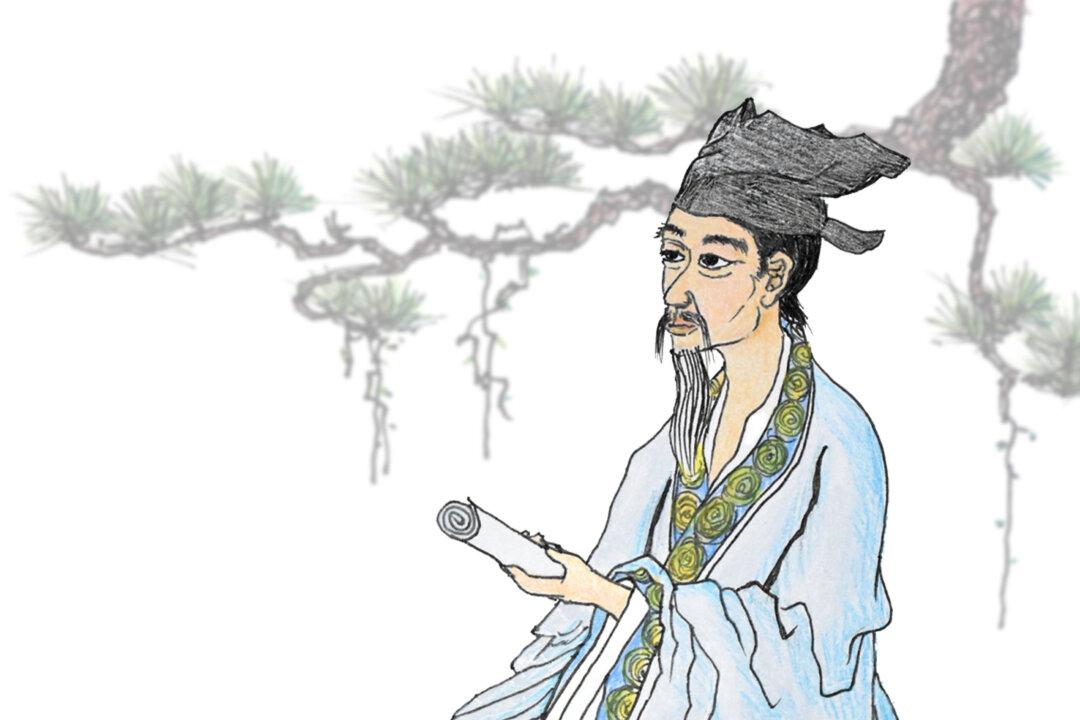Bai Juyi (772–846), also known as Po Chu-I and by his courtesy name Letian, was a renowned poet of the middle Tang Dynasty and a practitioner of Buddhism in the secular world.
When he was 6 or 7 months old, his nanny pointed to two Chinese characters on a folding screen and said, “This is ‘zhi’ and this is ‘wu.’”





